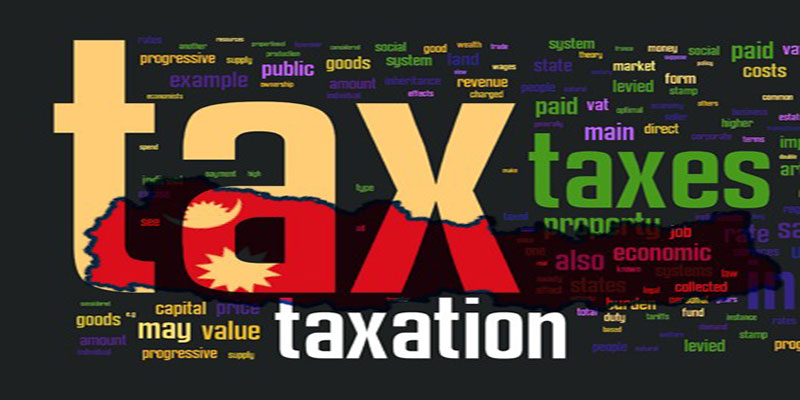
Nepal, one of the developing countries has a long history of taxation. However, the modern tax system has gained momentum with the establishment of Democracy. Earlier in the 1950s the major sources of revenue were land tax and the tariff on foreign trade. Later in the 1960s, other taxes like sales tax, import-export tax, business tax, etc. were introduced which generated the revenue for Government.
Nepal’s tax structure can be broadly classified into
- Direct Tax
- Indirect Tax
- Non-Taxes
The tax is mainly dominated by Indirect Tax which contributes 60% of total revenue and the rest is covered by Direct and Non-Taxes. Direct tax comprises of income tax, house, and land registration fees. The Indirect taxes constitute of Custom Duties, VAT, Excise duties. Nepal Realistic Solution helps you to understand these types of taxes and make you understand the impact on your personal income and plan accordingly. We have qualified, experienced Charted Accountant who will help you to understand in an effective manner.
The Tax system in Nepal suffers from serious structural constraints. There are procedural complexities in the existing Income Tax Act. Taxpayers are unaware of the tax they have to pay. This results in corruption in the system, which is the major problem in our country. The major issues and problems of taxation include:
- High tax rate
- Limited tax base
- Leakages in tax collection
- Rigid and complex Income Tax Act,2000
- Inefficient, indifferent and corrupt tax administration
As a result, we should concentrate on these issues and rectify them as soon as possible. Nepal Realistic Solution will provide the guidelines on Income Tax and its system. Our team will make you aware of the current taxation policies and the information provided will definitely make you vigilant and change the perspective to look in a different manner.
As we know we should pay our taxes regularly and the Government should use the amount collected in an effective and dynamic manner. The government should spend a significant amount to meet the high infrastructure development aspirations of people.
The provision for tax exemptions will reduce the tax collection, However Tax exemptions are necessary to encourage private investments and motivate workers for high performance. This will promote Entrepreneurship. The Nepalese tax system is regressive in nature, which neither leads the economy towards short-run stability nor long-run development This is due to various reasons like existing tax structure and heavy reliance on indirect taxes like customs, sales and excises which have low elasticity this will lead to revenue reduction.
An efficient tax system is a strong and sustaining tax structure. The government in the past and present mobilized revenues through a series of tax reforms during the Tenth Plan and a three-year Interim development plan. These reforms comprise of:
- Streamlining and rationalization of tax rates in conformity with provisions envisaged by WTO, SAFTA, and BIMSTEC.
- Reforming Tax Laws and Regulations.
- Improving the efficiency of Tax Administrations.
Our policies and procedures should be easy to follow and transparent. To make our economy strong and sustainable we have to plan accordingly. An aware and responsible individual will make a difference in the society so please use this opportunity from our expert team (Nepal Realistic Solution) who will guide and mentor you. We can make a difference in nation-building through a small contribution from our side.